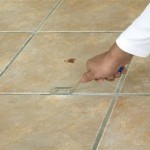Maintaining the Elegance of Stone Bathroom Sinks: A Comprehensive Guide to Cleaning
Stone bathroom sinks, prized for their natural beauty and durability, offer a touch of sophistication to any bathroom design. Materials like granite, marble, travertine, and slate evoke a sense of luxury and permanence. However, the inherent porous nature of natural stone requires specific cleaning and maintenance practices to prevent staining, etching, and other forms of damage. This article provides a detailed overview of how to effectively clean stone bathroom sinks, preserving their aesthetic appeal and extending their lifespan.
Choosing the right cleaning product is paramount. Harsh chemicals, abrasive cleaners, and acidic substances can irreparably damage the stone's surface. The following sections will delve into suitable cleaning agents, recommended cleaning techniques, and preventative measures to ensure the long-term beauty of your stone bathroom sink.
Understanding the Vulnerabilities of Stone
Natural stone, unlike synthetic materials, possesses microscopic pores that allow liquids to penetrate the surface. This porosity makes stone susceptible to staining from spills, soap scum buildup, and hard water deposits. Acidic substances, such as vinegar, lemon juice, and many common household cleaners, can react with the calcium carbonate present in many types of stone, notably marble and travertine, leading to etching, a dulling or roughening of the surface. Understanding these vulnerabilities is the first step toward implementing a proper cleaning regimen.
Furthermore, different types of stone exhibit varying degrees of porosity and sensitivity. Marble, being relatively soft and porous, requires more gentle and frequent cleaning compared to granite, which is denser and more resistant to staining. Slate, due to its layered structure, may be prone to flaking if subjected to harsh chemical treatments. Therefore, identifying the type of stone your sink is made of is crucial for selecting appropriate cleaning methods and products.
Another common issue is the accumulation of hard water deposits. Hard water contains minerals like calcium and magnesium, which can leave unsightly white spots and scaling on the sink's surface. These deposits are particularly noticeable on darker colored stones. Regular removal of hard water deposits is essential to maintain the sink's pristine appearance.
Appropriate Cleaning Agents for Stone Sinks
The best approach to cleaning stone bathroom sinks involves using pH-neutral cleaners specifically formulated for natural stone. These cleaners are designed to gently remove dirt, grime, and soap scum without damaging the stone's surface. Look for products that are labeled as "stone cleaner" or "pH-neutral cleaner." Always read the product label carefully and follow the manufacturer's instructions.
A mild dish soap, diluted in warm water, can also be used for routine cleaning. However, it is important to use a soap that does not contain harsh chemicals or abrasive additives. After washing with soap and water, thoroughly rinse the sink with clean water to remove any soap residue. Soap residue can attract dirt and contribute to the formation of soap scum buildup.
For removing stubborn stains, consider using a poultice. A poultice is a soft, pasty mixture of an absorbent material, such as diatomaceous earth or baking soda, combined with a liquid that draws out the stain. The poultice is applied to the stain, covered with plastic wrap, and left to sit for several hours or even overnight. The absorbent material draws the stain out of the stone. This method is particularly effective for removing oil-based stains and watermarks.
Avoid using the following cleaning agents on stone bathroom sinks:
- Vinegar
- Lemon juice
- Ammonia
- Bleach
- Abrasive cleaners (such as scouring powders or pads)
- Acidic toilet bowl cleaners
These substances can cause etching, discoloration, and permanent damage to the stone's surface.
Effective Cleaning Techniques for Stone Sinks
Regular cleaning is essential for maintaining the beauty of stone bathroom sinks. A daily or weekly routine will prevent the buildup of dirt, soap scum, and hard water deposits, making cleaning easier in the long run.
For daily cleaning, simply wipe the sink with a soft, damp cloth to remove any spills or splashes. Use a pH-neutral stone cleaner or a mild dish soap solution for more thorough cleaning. Apply the cleaner to a soft cloth, rather than directly to the sink, to prevent oversaturation and streaking.
When cleaning, use gentle, circular motions to avoid scratching the surface. Pay particular attention to areas around the drain and faucet, where soap scum and hard water deposits tend to accumulate. Rinse the sink thoroughly with clean water after cleaning to remove any residue from the cleaning agent.
After rinsing, dry the sink completely with a clean, soft cloth. Drying the sink prevents water spots and helps to maintain its shine. A microfiber cloth is ideal for drying stone surfaces, as it is highly absorbent and lint-free.
For removing hard water deposits, a specialized stone cleaner designed for hard water removal can be used. Follow the manufacturer's instructions carefully. Alternatively, a paste of baking soda and water can be applied to the affected areas. Let the paste sit for a few minutes, then gently scrub with a soft brush or cloth. Rinse thoroughly with clean water and dry.
To address stubborn stains, consider using a poultice as described earlier. Remember to test the poultice in an inconspicuous area first to ensure it does not discolor or damage the stone. Allow the poultice to dry completely before removing it. If the stain persists, repeat the process.
In some cases, professional stone restoration may be necessary to repair deeply etched or stained surfaces. Stone restoration professionals have the expertise and equipment to grind, polish, and seal stone surfaces, restoring them to their original beauty.
Preventative Measures to Protect Stone Sinks
Prevention is key to maintaining the beauty of stone bathroom sinks. Implementing preventative measures can significantly reduce the need for extensive cleaning and repair.
Apply a high-quality stone sealer to the sink's surface. A sealer penetrates the stone's pores, creating a barrier that prevents liquids from seeping in and causing stains. Reapply the sealer according to the manufacturer's instructions, typically every 1-3 years.
Wipe up spills immediately. The longer a spill sits on the stone's surface, the greater the chance of staining. Use a clean, absorbent cloth to blot the spill, rather than wiping it, to prevent spreading the stain.
Use coasters or trays to protect the sink's surface from toiletries and other items that may contain acidic or staining substances. Place soap dishes and toothbrush holders on coasters to prevent soap scum and water spots from accumulating directly on the stone.
Avoid using abrasive cleaning tools, such as scouring pads or steel wool, as they can scratch the stone's surface. Opt for soft cloths, sponges, or brushes specifically designed for cleaning stone.
Ensure proper ventilation in the bathroom to prevent moisture buildup. Excess moisture can contribute to the growth of mold and mildew, which can stain and damage stone surfaces. Use the exhaust fan during and after showering or bathing to remove moisture from the air.
Consider installing a water softener if you have hard water. A water softener removes minerals from the water, preventing the formation of hard water deposits on the sink's surface.
By following these cleaning and maintenance guidelines, homeowners can effectively preserve the beauty of their stone bathroom sinks, ensuring that they remain a stunning focal point in the bathroom for years to come. Regular care and preventative measures are essential for protecting this valuable investment and maintaining its natural elegance.

How To Clean A Stone Sink

Best Ways To Clean Your Home With Universal Stone The Savvy Dreamer

A Quick Care Guide For Natural Stone Wash Basins Capstona

Pumice Stone For Toilet Bowl Cleaning Scouring Stick Stain Removal To Remove Hard Water Rings Calcium Buildup And Rust Suitable Bathroom Kitchen Sink

Natural Stone Shower Soap Scum Remover Spray For Cleaning Bathtubs G Bdstoneworks

How To Clean The Sink Tips For Cleaning Your Natural Stone Bathroom

How To Clean Natural Stone Sink Faq

Simple Green 32 Oz Stone Cleaner And Polish 3710001202432 The Home Depot

How To Clean Natural Stone Without Damaging It Lovetoknow

How To Clean Remove Reapply Caulk In Kitchens And Bathrooms
Related Posts







